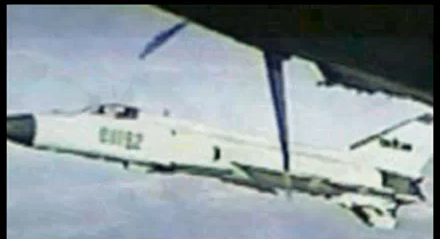November 06, 2010
NSA loses the crown jewels, or, Law of Unintended Consequences meets Flights of Brittleness
Lynn points to a long story in The New Yorker that gives a well-written and strong story by Seymour M. Hersh on the origins of the current Cyber War propaganda push by the US Department of Defence. I and many others of the community called this a budgetary war, not a real threat, and it is good to see that there are many in the USA administration that have called "bull" on the Cyber War claim.
Picking up from page 7:
Why not ignore the privacy community and put cyber security on a war footing? Granting the military more access to private Internet communications, and to the Internet itself, may seem prudent to many in these days of international terrorism and growing American tensions with the Muslim world. But there are always unintended consequences of military activity—some that may take years to unravel.
Of particular note for those who subscribe to the "heavy" approach to secure systems, and poo-poo the doctrine of risk management in favour of absolute security, is an example of the Law of Unintended Consequences, and how complicated it is when you push the envelope at so many levels.
Ironically, the story of the EP-3E aircraft that was downed off the coast of China provides an example. The account, as relayed to me by a fully informed retired American diplomat, begins with the contested Presidential election between Vice-President Al Gore and George W. Bush the previous November. That fall, a routine military review concluded that certain reconnaissance flights off the eastern coast of the former Soviet Union—daily Air Force and Navy sorties flying out of bases in the Aleutian Islands—were redundant, and recommended that they be cut back.“Finally, on the eve of the 2000 election, the flights were released,” the former diplomat related. “But there was nobody around with any authority to make changes, and everyone was looking for a job.” The reality is that no military commander would unilaterally give up any mission. “So the system defaulted to the next target, which was China, and the surveillance flights there went from one every two weeks or so to something like one a day,” the former diplomat continued. By early December, “the Chinese were acting aggressively toward our now increased reconnaissance flights, and we complained to our military about their complaints. But there was no one with political authority in Washington to respond, or explain.” The Chinese would not have been told that the increase in American reconnaissance had little to do with anything other than the fact that inertia was driving day-to-day policy. There was no leadership in the Defense Department, as both Democrats and Republicans waited for the Supreme Court to decide the fate of the Presidency.
The predictable result was an increase in provocative behavior by Chinese fighter pilots who were assigned to monitor and shadow the reconnaissance flights. This evolved into a pattern of harassment in which a Chinese jet would maneuver a few dozen yards in front of the slow, plodding EP-3E, and suddenly blast on its afterburners, soaring away and leaving behind a shock wave that severely rocked the American aircraft. On April 1, 2001, the Chinese pilot miscalculated the distance between his plane and the American aircraft. It was a mistake with consequences for the American debate on cyber security that have yet to be fully reckoned.
For what went wrong after that, read the rest of the story!
